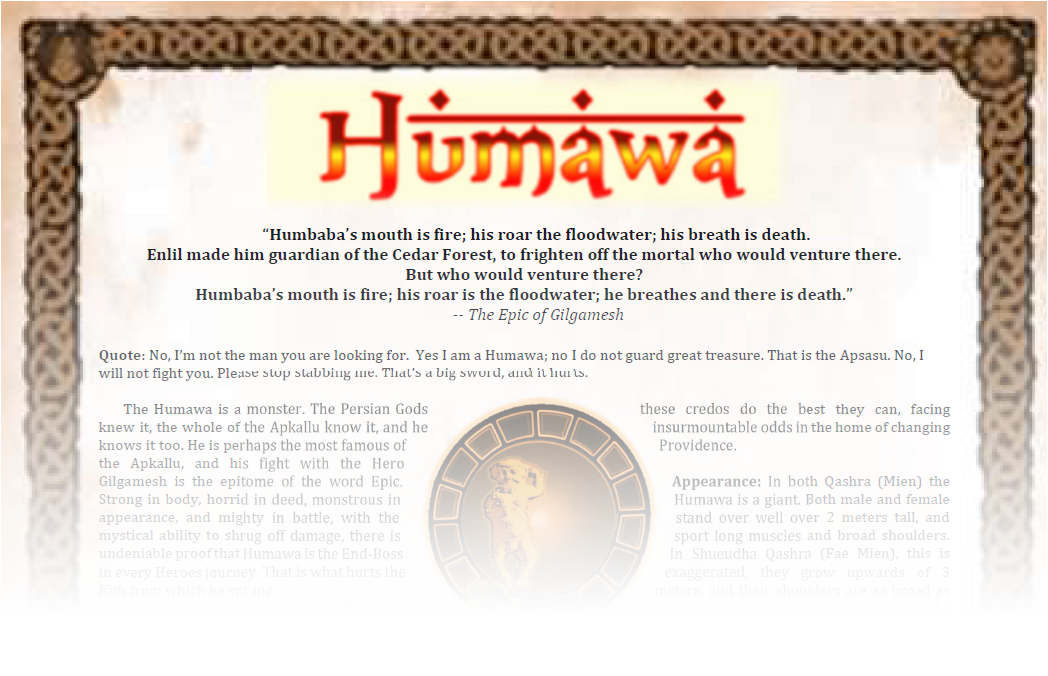A Year & A Day: Humawa
Changeling: the Dreaming
Homebrew Rules
Character Creation Guide Download: Humawa.pdf

Quoth the Humawa:
“No, I’m not the man you are looking for. Yes I am a Humawa; no I do not guard great treasure. That is the Apsasu. No, I will not fight you. Please stop stabbing me. That’s a big sword, and it hurts.”
Kith Excerpt:
The Humawa is a monster. The Persian Gods knew it, the whole of the Apkallu know it, and he knows it too. He is perhaps the most famous of the Apkallu, and his fight with the Hero Gilgamesh is the epitome of the word Epic. Strong in body, horrid in deed, monstrous in appearance, and mighty in battle, with the mystical ability to shrug off damage, there is undeniable proof that Humawa is the End-Boss in every Heroes journey. That is what hurts the Kith from which he sprang.
Being the end boss isn’t what the Humawa want. The Apkallu have healers and priests, scholars, and sentries, so it should be fitting that they have a Karmic balance to this cosmic greatness that is just as evil. The Humawa don’t want that billing. They strive to prove to the others that they can be a force of good, and use their immense strength and durability for good ends, and most epitomize the concepts of Me. Unfortunately, this is all for naught, and the Humawa are quickly relegated to the annals of villain-dom. To their credit, the other Khânevâde (Persian Fae Families/ Kith) might work through this and understand the Humawa’s dilemma. But good PR can’t change Fate, and the Humawa are invariably labeled the Bad-guy. Their fearsome demeanour and great strength a testament to what the Gods wanted.
Some of the more unsavory of the Kith give in, caving to the universe’s demands and rampaging across the Deserts. The famous Humbaba of Gilgamesh’s Fame is one such individual. These Unseelie-esque Apkallu prove that no amount of wishes can change one’s destiny. Those who don’t subscribe to these credos do the best they can, facing insurmountable odds in the home of changing Providence.
Flavor
“Humbaba’s mouth is fire; his roar the floodwater; his breath is death.
Enlil made him guardian of the Cedar Forest, to frighten off the mortal who would venture there.
But who would venture there?
Humbaba’s mouth is fire; his roar is the floodwater; he breathesand there is death.”
– The Epic of Gilgamesh

